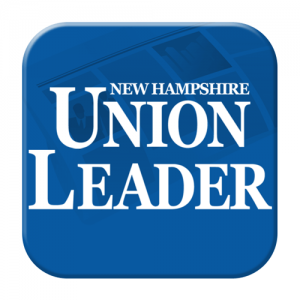
Although the No Labels Problem Solver Convention, which I attended, hasn’t dismantled partisan dysfunction once and for all, it was nice to have one day during the pre-primary process where the candidates weren’t speaking exclusively to their own hyper-partisan base; but rather, were speaking to a broad-based group of Democrats, Republicans, and independents — a group more representative of general election voters.
For the most part, candidates toned down the divisive rhetoric and dialed up a more substantive conversation.
When prospective office holders give heed to all of the people they’ll be representing — and not just a small partisan fraction of them — they’re more likely to put careful thought into how they’ll approach pressing issues and arrive at real solutions. But with a primary system that awards those who can best promote the party line, attack the other side and fire up the base, it didn’t take long for many of the participating candidates to get back on the campaign trail with divisive partisan politics as usual.
So why don’t we change the way we conduct primary elections so that candidates will feel accountable to all voters throughout the election process?
Washington State, California and Louisiana each have nonpartisan primaries wherein all candidates from all party preferences to no party preference appear on the same primary ballot, and all voters, regardless of party identification vote on that same ballot.
The highest vote getters, regardless of party, advance to the general election. Such a move would put power in the hands of the people, instead of the parties. Citizens of other states (such as Arizona, Oregon and Florida) are working hard to push through their own nonpartisan primary initiatives.
Although we don’t have an initiative process in New Hampshire, I think the independent spirit of New Hampshire voters would welcome this approach.
While independents in New Hampshire can vote in primary elections, they still have to register with a party and choose one party’s ballot; nobody can vote for their favorite candidate in each race when split between parties. With independent voters accounting for 43 percent of New Hampshire voters, why should we have to pick one of the two major parties in order to vote in the first round of our public elections? Don’t we have a right to not affiliate with a party? Shouldn’t we still get a say in every stage of the election process?
The problem with shutting out so many voters in primary elections is even more pronounced in states or districts where one party dominates, be it Republican or Democrat.
In those states and districts, general elections aren’t competitive, so the primary elections are always the most determinative elections.
Thus, primary elections (which are publicly funded) should be true preliminary rounds of the general election — equally open to all voters and candidates, without requiring them to join a political party and stay in the box.
We have a broken process in need of reform when primary elections are just a way for private clubs (parties) to get a public stamp of approval on their private endorsement process, with near-exclusive access to the final public election ballot.
Indeed, parties should be able to endorse and advocate for their favorite candidate in each race, but they should do so like any other special interest group, without special advantages that shut so many out.
That’s why New Hampshire Independent Voters has joined independent voters around the country in supporting the “Open Our Democracy Act” in Congress, which in addition to addressing redistricting reform and making Election Day a federal holiday, calls for nonpartisan primaries in U.S. House and Senate elections.
Some speakers at the Problem Solver Convention said the problem is with the people, not the system. But I believe most people start out wanting to solve problems; our partisan electoral system, combined with big money, makes it nearly impossible to do so.
All citizens, regardless of party identification or money should get a meaningful say in determinative elections. And when they do, candidates and office holders will be accountable to all voters, and not just the most partisan among us, leading them to act more magnanimously to solve problems.